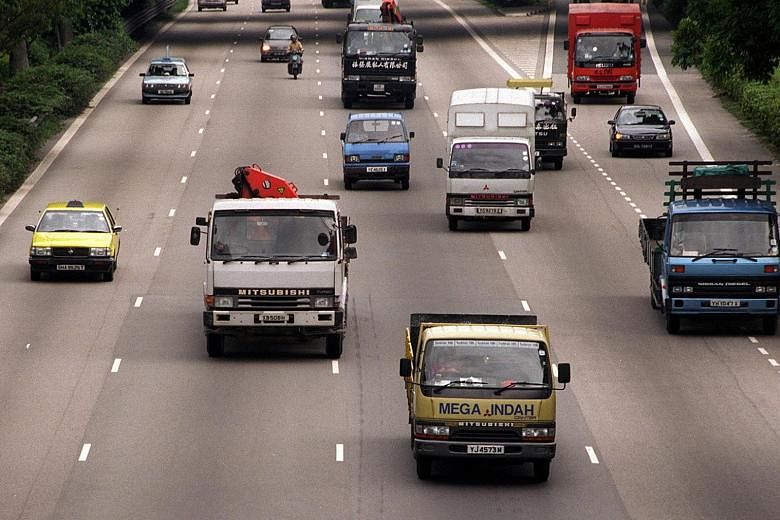SINGAPORE - The number of fatal accidents in Singapore involving heavy vehicles fell last year but there was an increase in non-fatal accidents and cases of traffic violations, Traffic Police figures show.
Heavy vehicle accidents which resulted in death fell from 44 to 34, while non-fatal accident numbers rose from 795 to 843.
The figures were mentioned at a seminar on Monday (18 Apr) on how road safety could be improved. Held at the ComfortDelGro auditorium at Braddell, it was attended by 180 owners, safety and operations managers of heavy vehicle fleets here.
Describing the statistic as "disturbing" for TP, Commander Sam Tee said in his opening address at the event: "Heavy vehicles... happen to be the most conspicuous on the road. When heavy vehicles are involved in an accident, the damage is far greater and more lives are potentially endangered."
He added: "Heavy vehicle drivers face their own set of difficulties. It takes a lot of skill and precision to operate the vehicle, and a lot of patience."
Speaking to the media later, he said that heavy vehicles are essential to the economy, and TP has plans to educate drivers to respond to heavy vehicles on the road.
Organised by the Traffic Police (TP) and the Singapore Road Safety Council, the seminar is part of a two-year programme called Use Your RoadSense. Now into its second year, the programme engages road user groups in dialogue to understand their concerns and develop a safer road culture.
Heavy vehicles make up about 5 per cent of the vehicle population in Singapore. Drivers of these vehicles face heavier penalties for traffic offences.
In the accidents these heavy vehicles were involved in, heavy vehicle drivers were found to be at fault half the time.
During the dialogue, a panel of seven experts from various fields, including policy, operations and workplace safety, made suggestions such as changing company processes, training and educating drivers and investing in technology to reduce heavy vehicle accidents.
All of them agreed on the potential of switching drivers' remuneration method from the current pay-per-job system to one that considers "total useful distance travelled", thus reducing accidents due to drivers speeding unnecessarily or trying to complete too many trips in a day.
Other suggestions included implementing a maximum number of hours on the road for drivers, similar to pilots in the aviation industry, making driving safety refresher courses more convenient for drivers to attend, and constantly affirming drivers who avoid accidents and road violations when driving to build a positive work culture.
In addition, given that heavy vehicles have more blind spots, panellists also recommended installing technology that alerts drivers about road surroundings, such as geo-localisation and sensors.
Representatives from several companies, such as SBS and Samwoh, gave examples of company initiatives to maintain safety. For example, SBS taught its drivers to give a defensive honk when driving near heavy vehicles to alert them that a bus is nearby, after an accident involving a lorry transporting a crane in 2010.
Contrary to their perception as aggressive, drivers of heavy vehicles are actually the most cautious in terms of road safety because they understand that their actions could harm others, according to a survey commissioned by the Traffic Police last year.
The same survey found that about 14 per cent of heavy vehicle drivers would speed during light traffic and eight per cent would use the phone while driving, which was a lower incidence compared to regular motorists.

